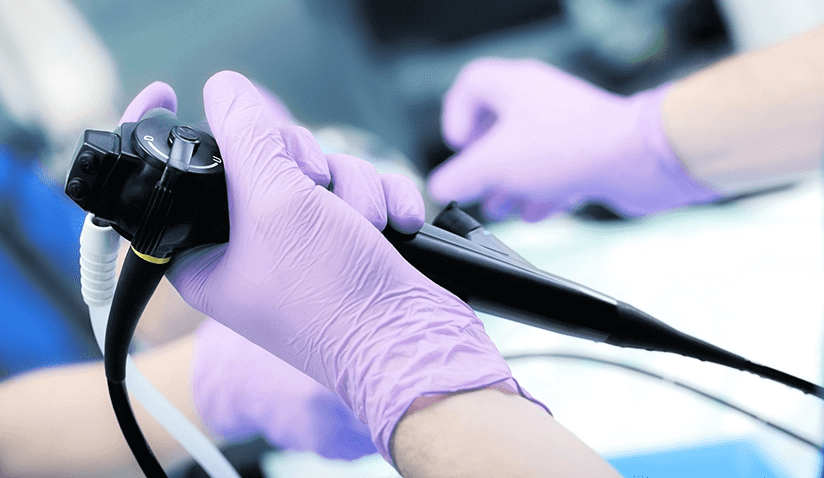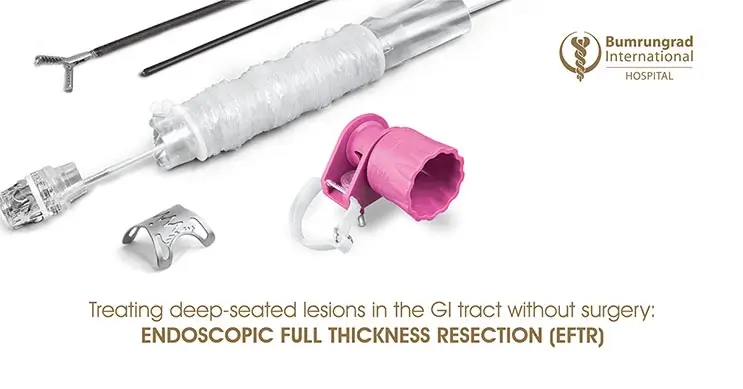Treating Deep-Seated Lesions in the GI Tract Without Surgery: Endoscopic Full Thickness Resection (EFTR)

In modern medicine, endoscopy is the gold standard in the diagnosis and treatment of gastrointestinal (GI) tract conditions. Through endoscopy, the doctor can detect very small lesions, only a few millimeters, perform a biopsy to find cancer cells, and take tissue samples to diagnose a variety of digestive diseases. However, in some cases, lesions may lie deep in the wall of the GI tract, which requires special techniques such as full-thickness resection to remove them. One of the newest technologies to treat those deep growths without surgery is endoscopic full thickness resection (EFTR) using the full-thickness resection device (FTRD).

In the past, once a deep-seated lesion or early tumor has been identified and cannot be removed with complex tissue resection techniques such as endoscopic submucosal dissection (ESD), patients may require a surgical resection. The FTRD allows the endoscopist to achieve a thicker portion of resection to achieve oncologic resection, similar to that of surgical resection. In addition, a complete tissue resection in one-piece helps to stratify early cancerous lesions, i.e., if it shows evidence of lymphatic, vascular, or nerve invasions, so that the multidisciplinary tumor board can make a decision on the next step of management.
The Bumrungrad Digestive Disease Center team, led by US-trained Clinical Associate Prof. Dr. Tossapol Kerdsirichairat, is the first in Thailand and one of the very few in the regions to receive intensive training and regularly practice this technique.
Read more about Treating deep-seated lesions in the GI tract without surgery: endoscopic full thickness resection (EFTR) by Bumrungrad Hospital - Thailand
Featured Blogs



